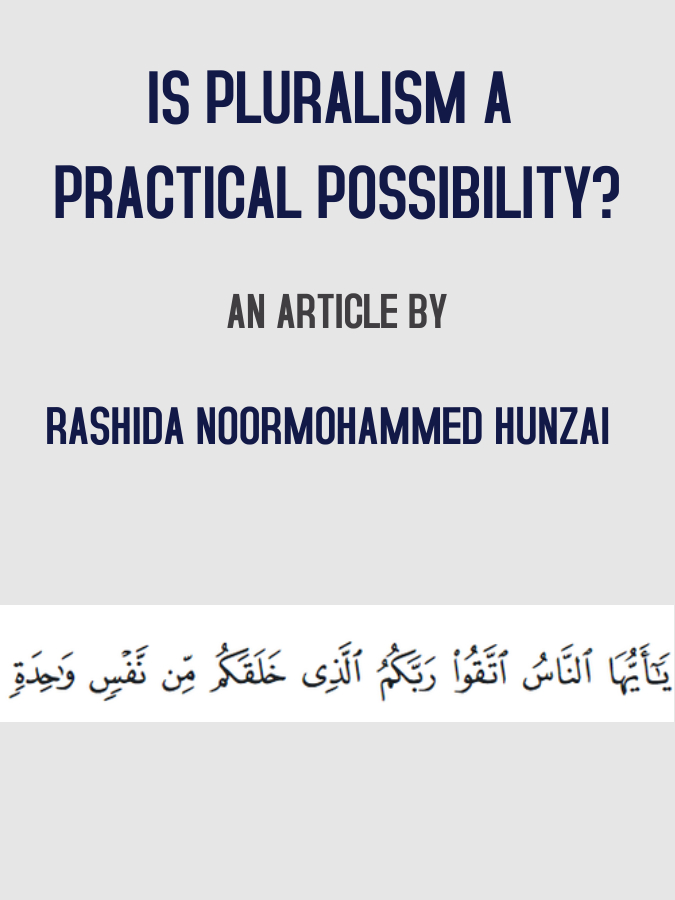Is Pluralism a Practical Possibility?
Excerpt:
This process is supplemented by mass migration of human beings forced to leave their homes by wars and conflict or by economic necessity. People who were ‘alien’ to us are often now living in the same apartment blocks or across the street. In short, on the one hand we experience the centripetal forces of globalisation and its parallel interconnection and on the other there are centrifugal forces at work which are the cause of fragmentation and polarisation. In such an environment, the challenge for pluralism is to reconcile our distinctive identities with our common humanity. Pluralism does not mean that we efface our differences and erase our distinctions to become a monolithic mass. Rather as H.H. Aga Khan IV says: “Going beyond tolerance, simply being sympathetic or sensitive to others, we must be ready to study and learn about others to the point where we are able to see others as they see themselves. In learning about others we can also come to learn lessons about ourselves. This learning then contributes to our experience of the Cosmopolitan Ethic, an ethic of respect that values human diversity. It rejects division as a necessary outcome of diversity, seeking instead to identify the qualities and experiences that unite rather than divide us as people and to forge a shared stake in the public good.”
This excerpt has been taken from page 2.

